IN PICTURES: Germany embraces cold snap amid warnings over icy waterways
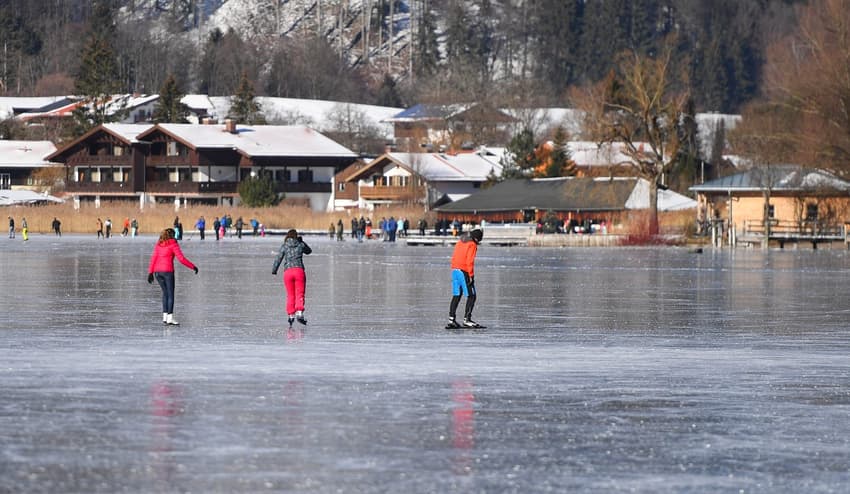
People across Germany have been making the most of the winter weather - but emergency services have warned against walking on frozen waterways. Now the big thaw is set to come.
You'll need to pause your ad blockers to see all the content in this story.
At the weekend lots of people got out in the blazing sunshine and bitterly cold temperatures.
In lots of areas, rivers, canals and ponds were completely frozen over. Families, skaters and dog walkers took to the waterways - however, police have warned against people doing this as the ice can crack and cause people to fall through.
In Berlin police said the strong sun combined with water currents can cause solid ice to become brittle and unstable.
Several people collapsed through the ice at the city's Schlachtensee on Saturday, according to the fire and rescue service. They were not injured.
There were also several accidents on the river Rhine in Düsseldorf, with rescue services having to be called out.
Temperatures are set to increase above freezing on Monday and Tuesday in Germany so authorities are continuing to warn people not to walk on waterways in case they crack.
This selection of tweets, and pictures by DPA photographers across Germany, gives a snapshot of how the country looks in extreme cold winter weather.
READ ALSO: Snow and bitterly cold temperatures hit Germany
Skaters hold hands while on the Landwehrkanal in Berlin on Sunday. People also walked on the frozen river Spree in the capital. Police regularly told people to get off the ice, particularly in some parts where it was not very strong.
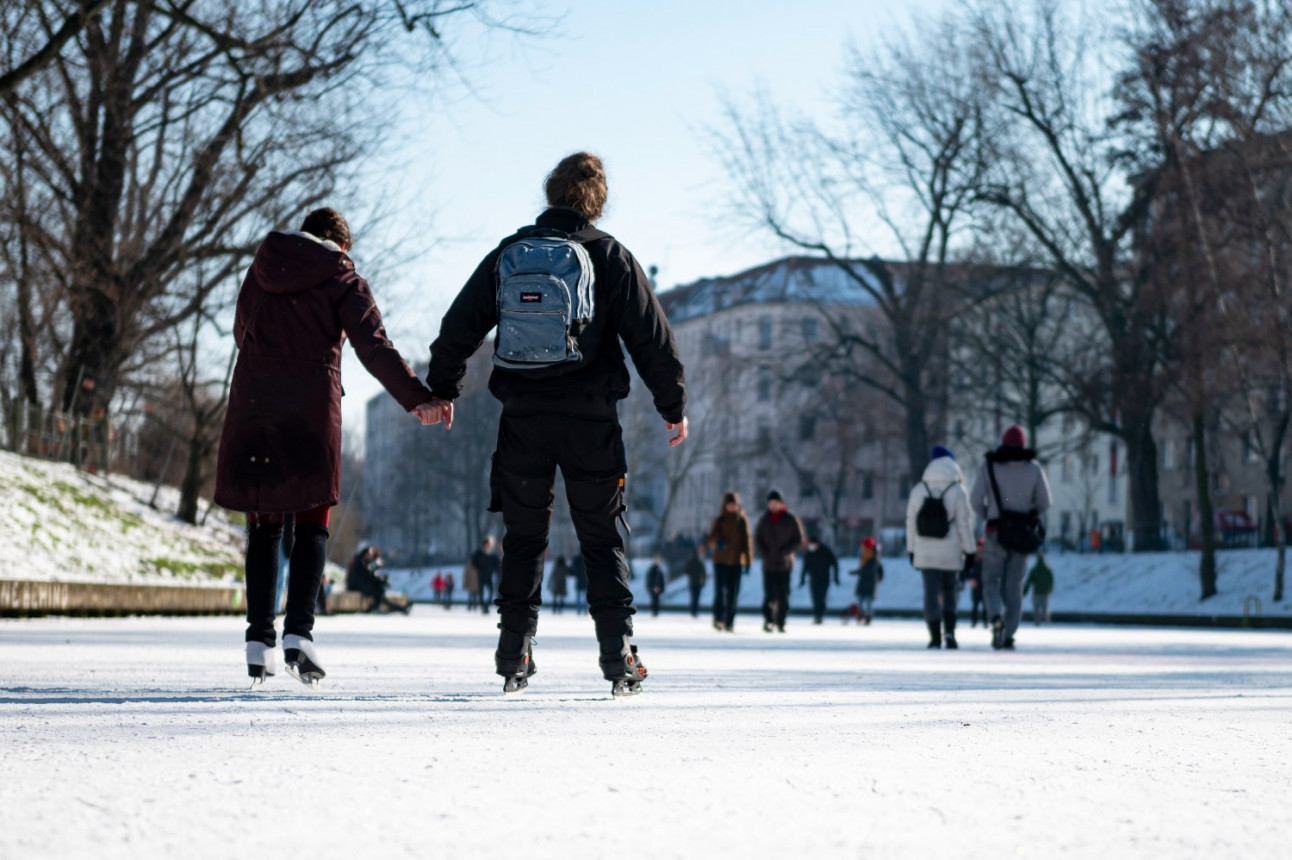
Casual game of ice hockey on the frozen canal in Berlin today? pic.twitter.com/gkqo3mNpCV
— Rachel Loxton (@RachLoxton) February 14, 2021
Wintersportgebiet für ein paar Tage. @tagesspiegel-Leser schickt uns diese Luftaufnahme der Rummelsburger Bucht. Mehr Fotos: https://t.co/2tu9YvU5qt #Berlin #Lichtenberg #Kiezkamera pic.twitter.com/oRgxyChgEb
— Henning Onken (@henning_onken) February 15, 2021
Numerous people on frozen water in front of Moritzburg Castle in Saxony.
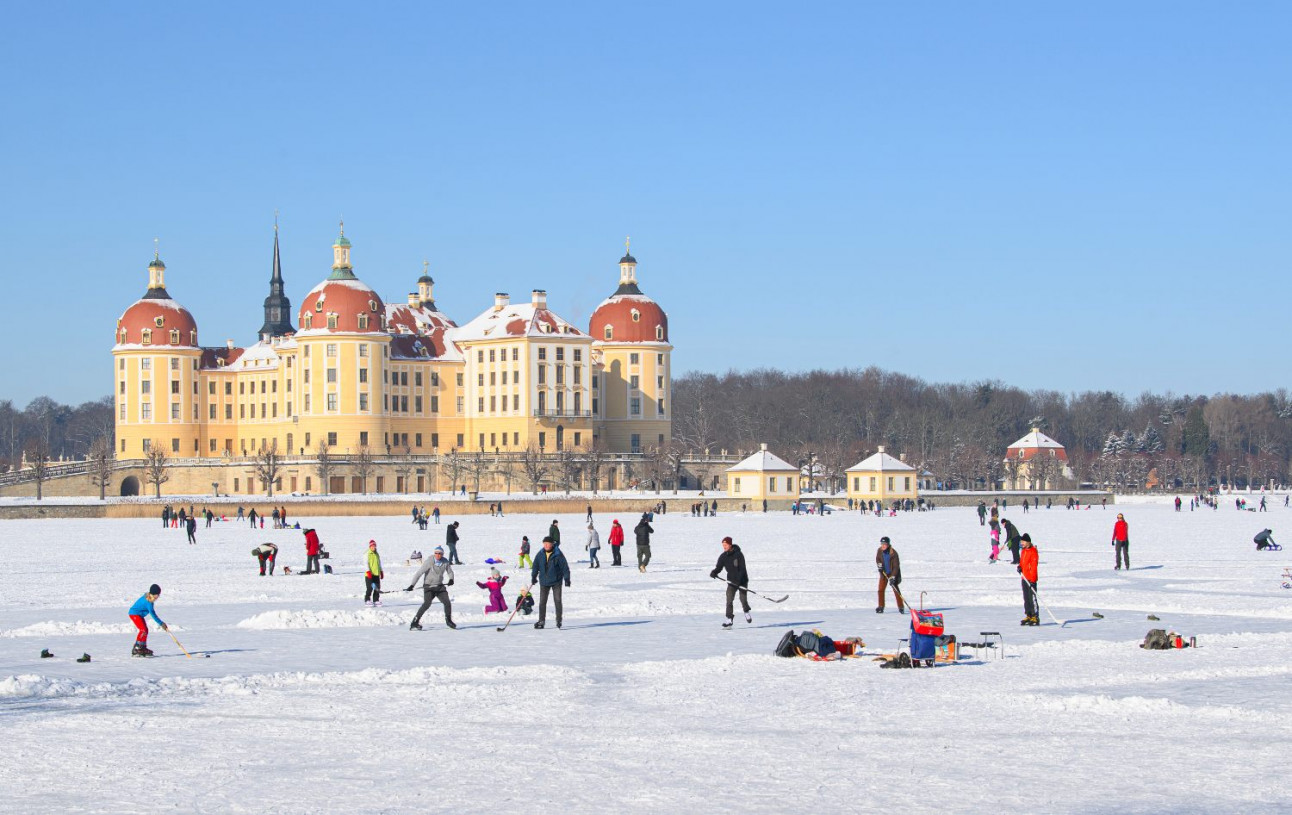
A police tells a couple to get off the ice at the Alsterpark in Hamburg.
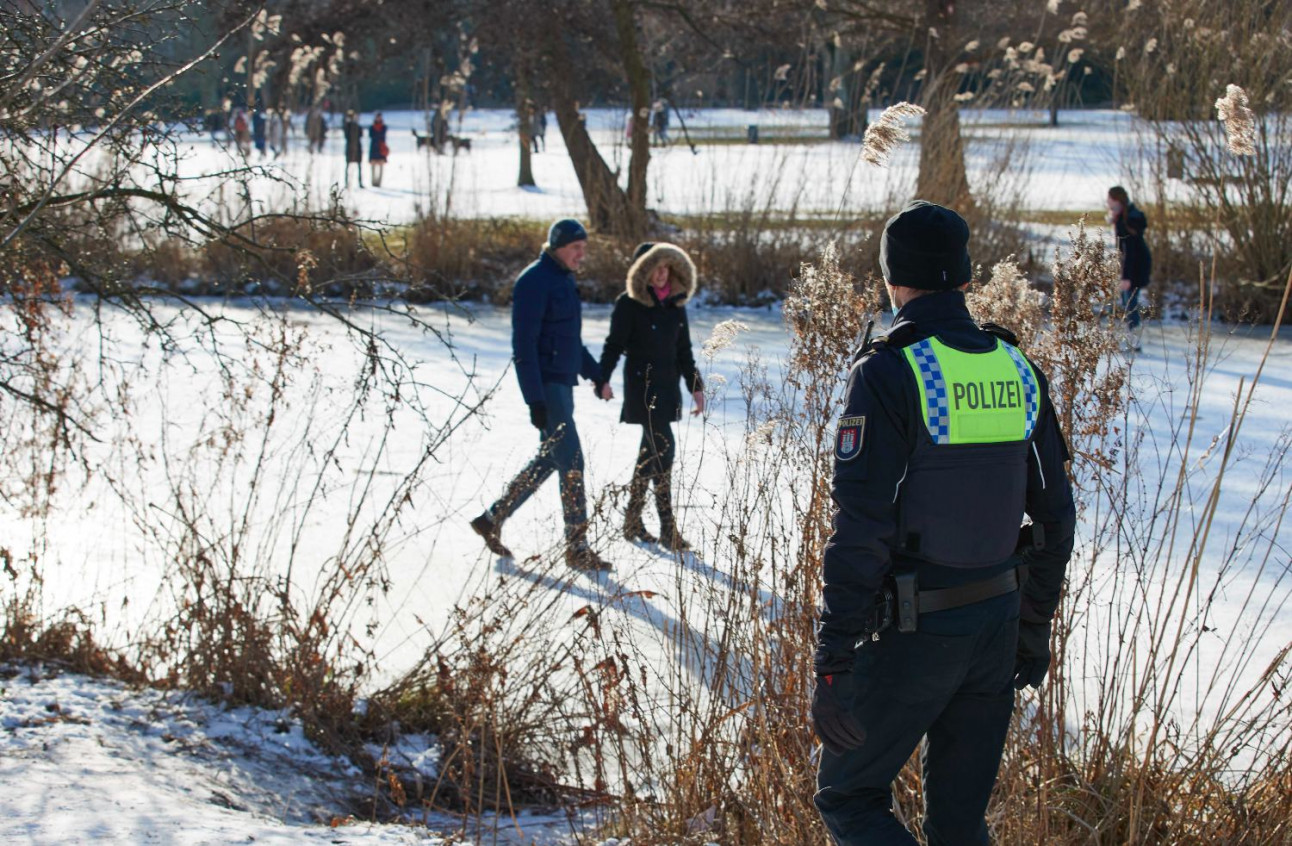
Wie man Ostfriesen glücklich machen kann - einfach mal ein paar Nächte ordentlich Frost schicken und dann Schöfeln lassen ?
Heute zusammen mit Mutti (72), die mir auf ihren Schnell-Läufern davon gelaufen ist ?#Ostfriesland #Eislaufen #glücklichsein pic.twitter.com/tlX8jnRgi0
— Ostfreeske Deern (@OstfreeskeDeern) February 12, 2021
Bracing the cold snowy weather in Dresden.
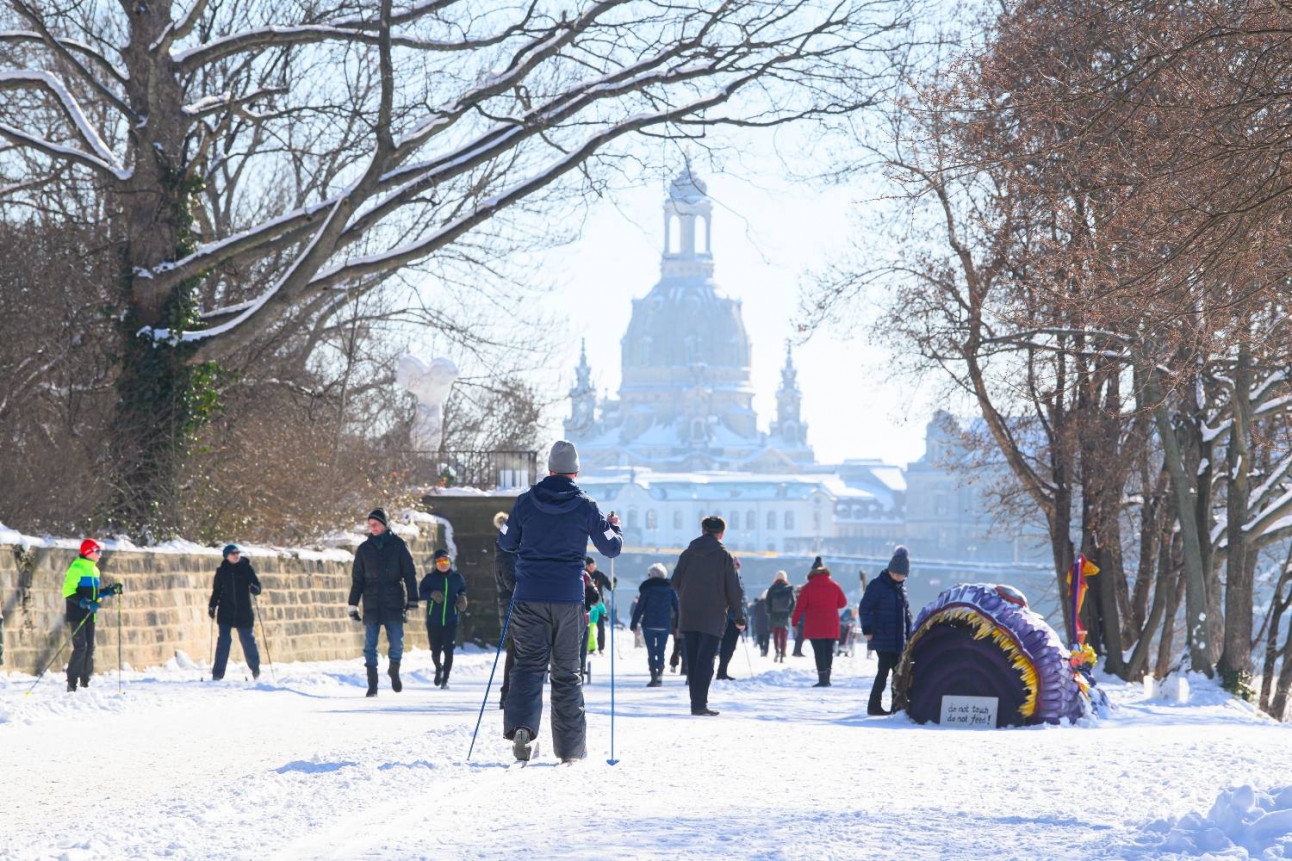
#valentinesday2021, Berlin pic.twitter.com/fSdhAiCAUo
— Deborah Cole (@doberah) February 14, 2021
Several people on frozen water at Benrath Castle in Düsseldorf.
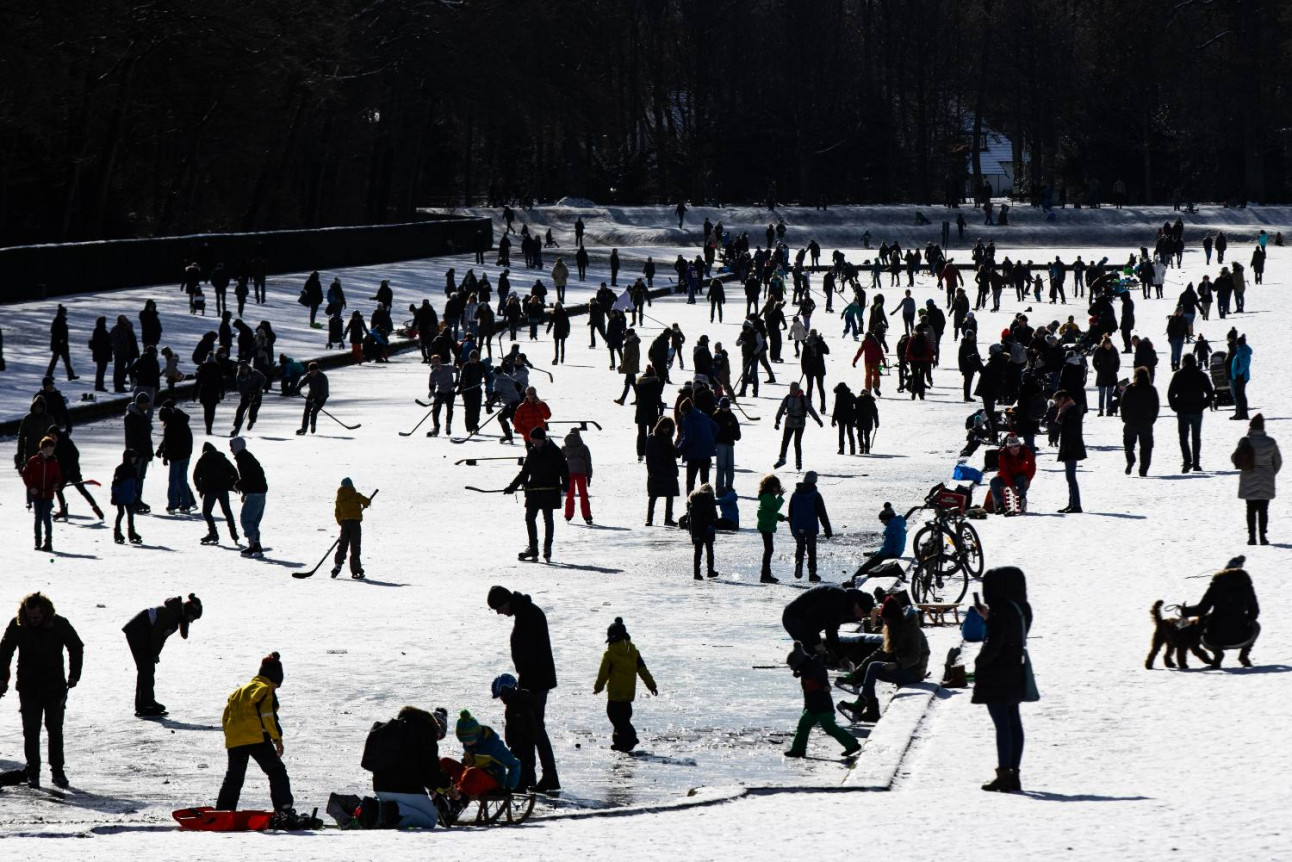
Mal was fröhliches #Eislaufen pic.twitter.com/fVdAQwQPXx
— Lu Yen Roloff (@lyroloff) February 13, 2021
Adults and kids out and about on Steinhude lake in the Lower Saxony sunshine.
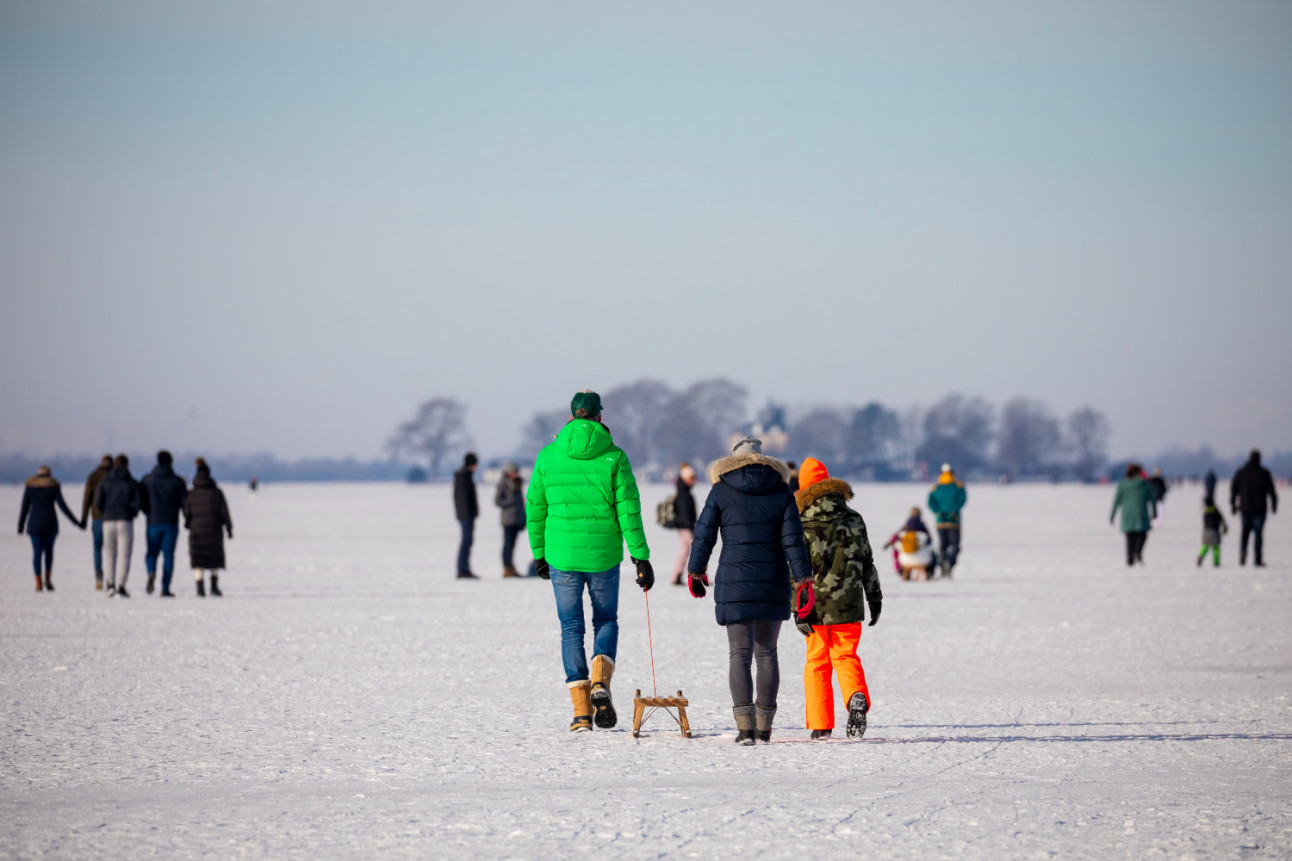
#Vorsicht beim Betreten von #Eisflächen
Zwar ist es ziemlich kalt, aber zum #Eislaufen reicht es noch nicht ganz: Die Eisflächen in #Mittelfranken sind noch nicht dick genug!
Bitte betretet die gesperrten Flächen nicht! Infos findet Ihr hier: https://t.co/87tVyMeeU0 pic.twitter.com/D40ilQvduM
— Polizei Mittelfranken (@PolizeiMFR) February 10, 2021
Police used a helicopter to tell people to get off the ice at Müggelsee in Berlin as this tweet shows.
Wenn Sie wissen wollen, warum der ?Hubschrauber heute Nachmittag über dem #Müggelsee im Einsatz war...
...und wenn Sie wissen wollen, was da über Lautsprecher gerufen wurde: ? RUNTER VOM EIS (nur viel höflicher)
^tsm pic.twitter.com/1mVa3JzIGy
— Polizei Berlin (@polizeiberlin) February 12, 2021
An ice hockey game in front of the Monument to the Battle of the Nations in Leipzig.
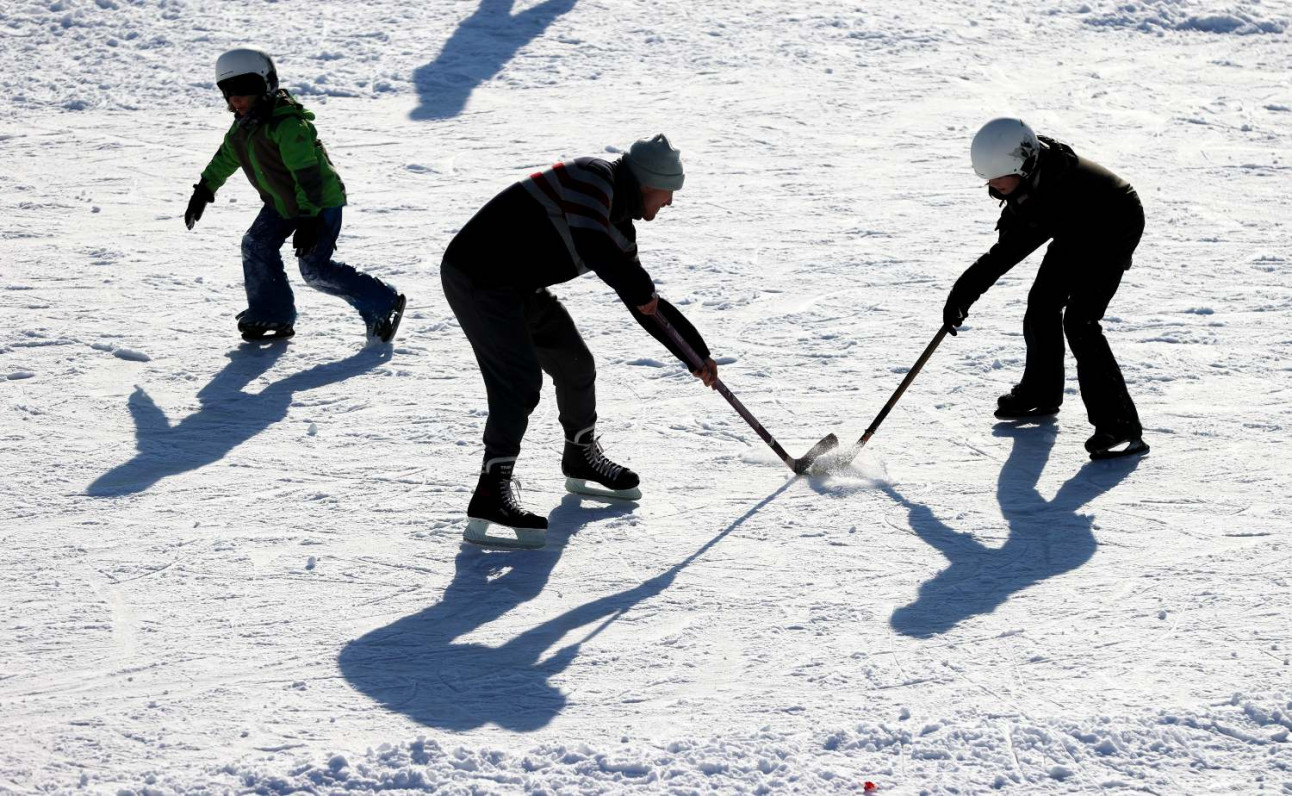
Families out and about on the frozen Rhine river in Düsseldorf.
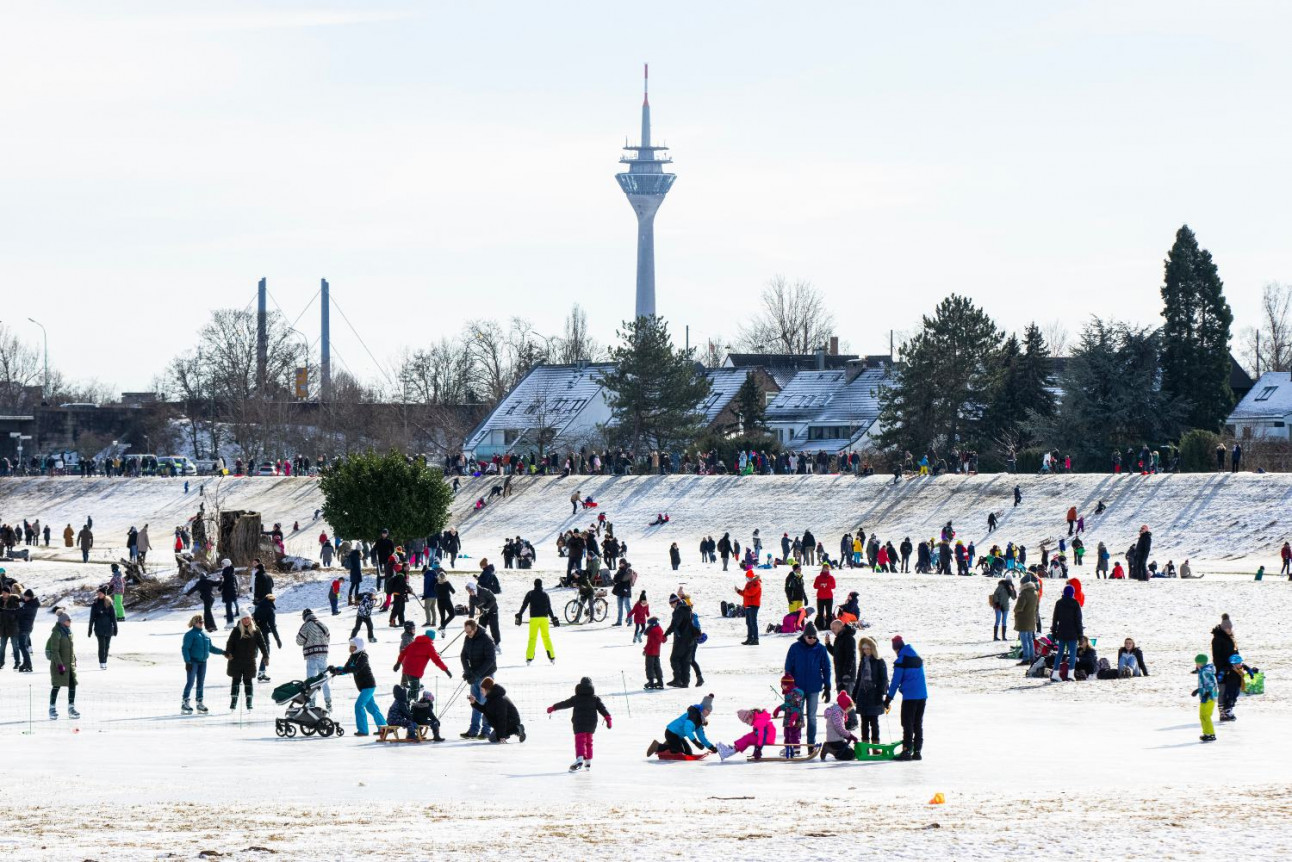
Eis! Ice! #Berlin pic.twitter.com/wcyIOByF1p
— Josef Zens (@jz_GFZ) February 14, 2021
Little Elise wearing a bear hat while sledging at the Deister hill in Lower Saxony.

A police offer skating while checking the surfaces at Steinhude lake in Lower Saxony.
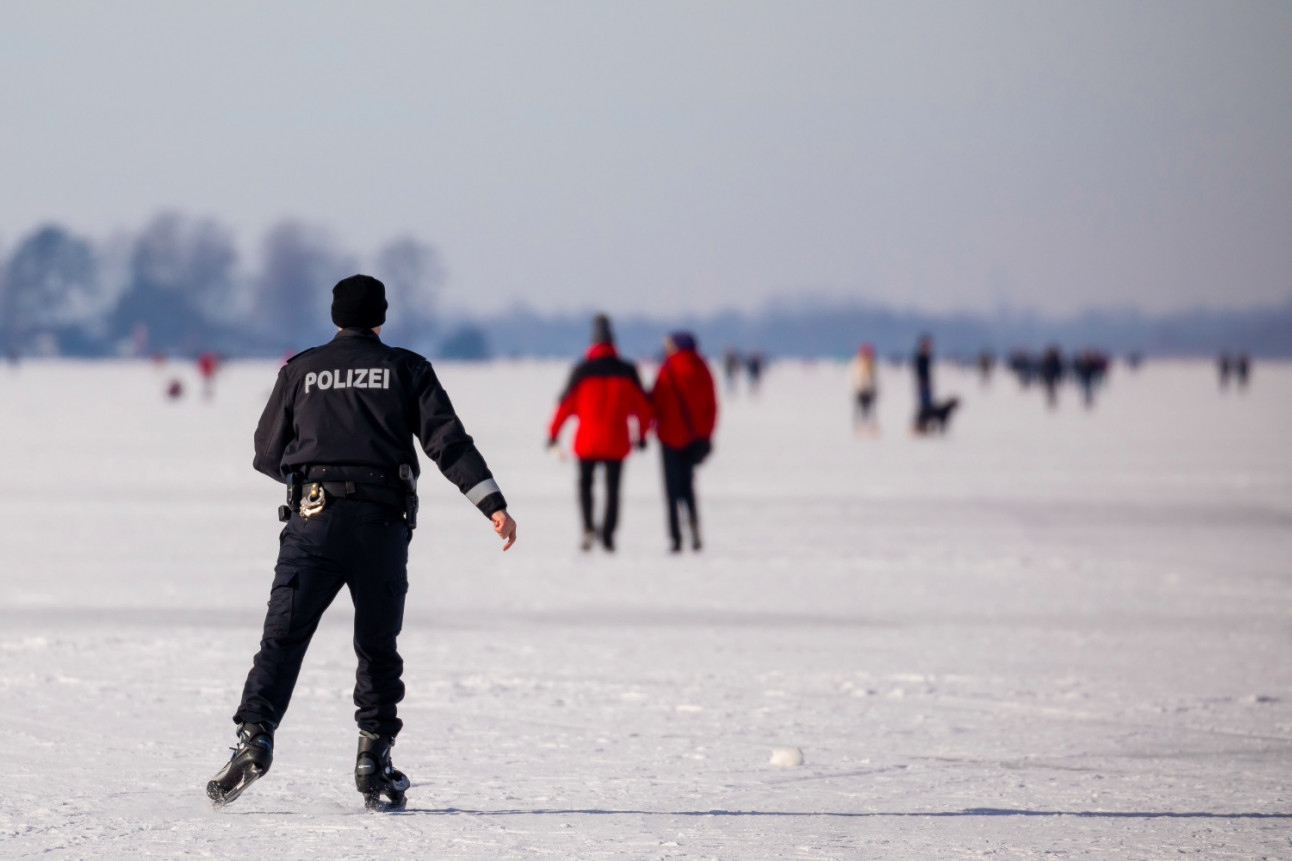
Comments
See Also
You'll need to pause your ad blockers to see all the content in this story.
At the weekend lots of people got out in the blazing sunshine and bitterly cold temperatures.
In lots of areas, rivers, canals and ponds were completely frozen over. Families, skaters and dog walkers took to the waterways - however, police have warned against people doing this as the ice can crack and cause people to fall through.
In Berlin police said the strong sun combined with water currents can cause solid ice to become brittle and unstable.
Several people collapsed through the ice at the city's Schlachtensee on Saturday, according to the fire and rescue service. They were not injured.
There were also several accidents on the river Rhine in Düsseldorf, with rescue services having to be called out.
Temperatures are set to increase above freezing on Monday and Tuesday in Germany so authorities are continuing to warn people not to walk on waterways in case they crack.
This selection of tweets, and pictures by DPA photographers across Germany, gives a snapshot of how the country looks in extreme cold winter weather.
READ ALSO: Snow and bitterly cold temperatures hit Germany
Skaters hold hands while on the Landwehrkanal in Berlin on Sunday. People also walked on the frozen river Spree in the capital. Police regularly told people to get off the ice, particularly in some parts where it was not very strong.

Casual game of ice hockey on the frozen canal in Berlin today? pic.twitter.com/gkqo3mNpCV
— Rachel Loxton (@RachLoxton) February 14, 2021
Wintersportgebiet für ein paar Tage. @tagesspiegel-Leser schickt uns diese Luftaufnahme der Rummelsburger Bucht. Mehr Fotos: https://t.co/2tu9YvU5qt #Berlin #Lichtenberg #Kiezkamera pic.twitter.com/oRgxyChgEb
— Henning Onken (@henning_onken) February 15, 2021
Numerous people on frozen water in front of Moritzburg Castle in Saxony.

A police tells a couple to get off the ice at the Alsterpark in Hamburg.

Wie man Ostfriesen glücklich machen kann - einfach mal ein paar Nächte ordentlich Frost schicken und dann Schöfeln lassen ?
— Ostfreeske Deern (@OstfreeskeDeern) February 12, 2021
Heute zusammen mit Mutti (72), die mir auf ihren Schnell-Läufern davon gelaufen ist ?#Ostfriesland #Eislaufen #glücklichsein pic.twitter.com/tlX8jnRgi0
Bracing the cold snowy weather in Dresden.

#valentinesday2021, Berlin pic.twitter.com/fSdhAiCAUo
— Deborah Cole (@doberah) February 14, 2021
Several people on frozen water at Benrath Castle in Düsseldorf.

Mal was fröhliches #Eislaufen pic.twitter.com/fVdAQwQPXx
— Lu Yen Roloff (@lyroloff) February 13, 2021
Adults and kids out and about on Steinhude lake in the Lower Saxony sunshine.

#Vorsicht beim Betreten von #Eisflächen
— Polizei Mittelfranken (@PolizeiMFR) February 10, 2021
Zwar ist es ziemlich kalt, aber zum #Eislaufen reicht es noch nicht ganz: Die Eisflächen in #Mittelfranken sind noch nicht dick genug!
Bitte betretet die gesperrten Flächen nicht! Infos findet Ihr hier: https://t.co/87tVyMeeU0 pic.twitter.com/D40ilQvduM
Police used a helicopter to tell people to get off the ice at Müggelsee in Berlin as this tweet shows.
Wenn Sie wissen wollen, warum der ?Hubschrauber heute Nachmittag über dem #Müggelsee im Einsatz war...
— Polizei Berlin (@polizeiberlin) February 12, 2021
...und wenn Sie wissen wollen, was da über Lautsprecher gerufen wurde: ? RUNTER VOM EIS (nur viel höflicher)
^tsm pic.twitter.com/1mVa3JzIGy
An ice hockey game in front of the Monument to the Battle of the Nations in Leipzig.

Families out and about on the frozen Rhine river in Düsseldorf.

Eis! Ice! #Berlin pic.twitter.com/wcyIOByF1p
— Josef Zens (@jz_GFZ) February 14, 2021
Little Elise wearing a bear hat while sledging at the Deister hill in Lower Saxony.

A police offer skating while checking the surfaces at Steinhude lake in Lower Saxony.

Join the conversation in our comments section below. Share your own views and experience and if you have a question or suggestion for our journalists then email us at [email protected].
Please keep comments civil, constructive and on topic – and make sure to read our terms of use before getting involved.
Please log in here to leave a comment.